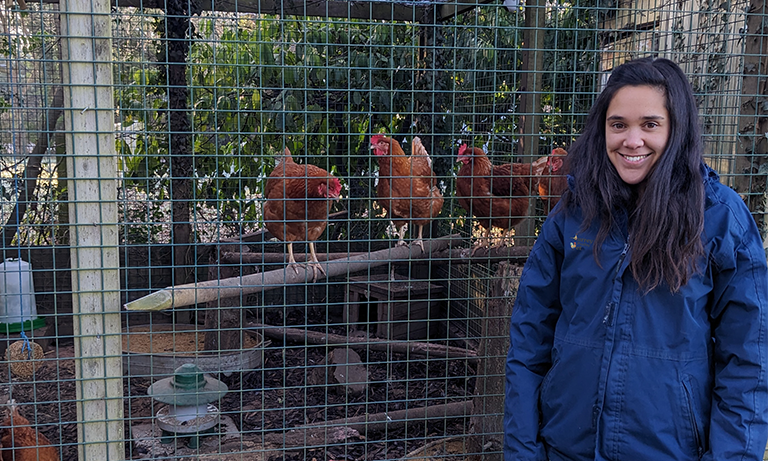Standing up for the veterinary profession
08 Aug 2024
Poultry vet and BVPA committee member Henrietta Kodilinye-Sims shares advice on how backyard and pet poultry keepers can provide enrichment for birds as avian influenza housing measures continue.

Following the prolonged housing order last winter, poultry keepers and industry were warned to prepare well in advance for the challenging avian influenza season we are now in.
In the three months since 1 October 2022, the UK has seen a record 155 cases of bird flu. Mandatory housing orders for all poultry have been in place across England and Wales since early November and December, respectively. Prevention zones are also in place in Northern Ireland and Scotland.
Commercial poultry farms that are signed up to various assurance schemes already have safeguards in place for welfare of birds during prolonged periods of housing. These include adhering to stocking density and enrichment requirements under Red Tractor, RSPCA Farm Assured and other schemes, such as perches and toys for all chickens and play bales for broiler chickens.
For backyard and pet poultry keepers, however, ensuring their birds’ welfare through an adequate coop set-up and enrichment opportunities during a prolonged housing period can be challenging. You would need to set up the coop in such a way that there is plenty of space for birds to get away from one another if they so desire. It should also be insulated against rainwater seeping through, as it washes infected faeces into the coop and also makes maintaining quality enrichment more difficult.
If you are a backyard or pet poultry keeper or run a small poultry enterprise (as a breeder, for example), here are some key steps you can take to ensure the health and welfare of your birds.
Enrichment should be part of the daily routine and encourage expression of a range of behaviors. Areas to focus on include:
Create a daily enrichment plan so that the main theme varies each day. For example, the plan could provide fruit forage in deep straw every day. On Mondays, Wednesdays and Fridays, you can add vegetable buntings, while Tuesdays, Thursdays and Saturdays could be for glitter balls and radio. Sundays can combine both elements. You can encourage the whole family to partake in this exercise- the adults doing the cleaning out should be able to delegate the more fun task of enrichment to younger members. Remember that every entry into the coop is a risk that infectious viral particles can be introduced to your birds, so be organised and get everything ready before you go in. See this APHA video on how to safely enter your coop using a foot dip or boot change. Ensure the family enacts good hygiene by hand washing after helping with the birds.
Different birds will respond to different types of enrichment and they easily become bored. Identify areas you wish to improve based on the list above and try new things. See how they respond and see whether or not you need to adapt it to improve the response.
Please contact your vet for advice if you are concerned about the health or welfare of your birds. Online advisory services are available if you are not registered with a local practice, which is advised.
7pm, Thursday 9 February 2023 | Zoom
Join our expert panel for the latest update on where Avian Influenza cases are in the UK for wild birds and poultry, and what this means for vets in practice and their clients.
Get tailored news in your inbox and online, plus access to our journals, resources and support services, join the BVA.
Join Us Today